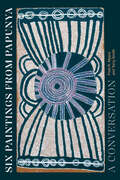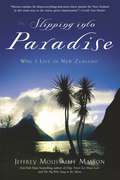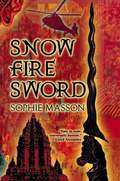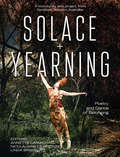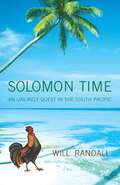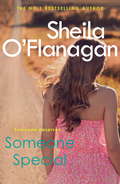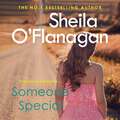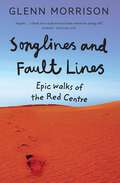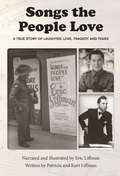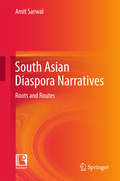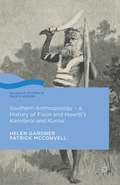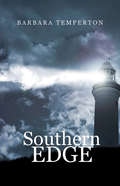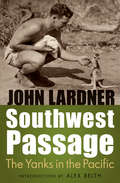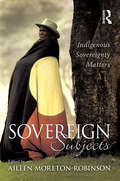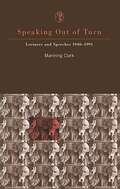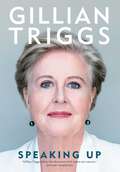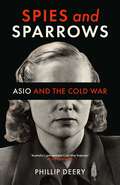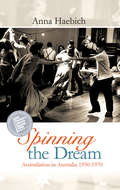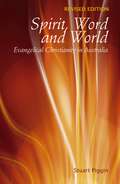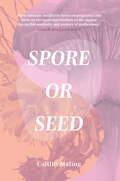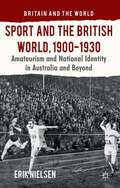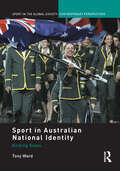- Table View
- List View
Six Paintings from Papunya: A Conversation
by Terry Smith Fred R. MyersIn the early 1970s at Papunya, a remote settlement in the Central Australian desert, a group of Indigenous artists decided to communicate the sacred power of their traditional knowledge to the wider worlds beyond their own. Their exceptional, innovative efforts led to an outburst of creative energy across the continent that gave rise to the contemporary Aboriginal art movement that continues to this day. In their new book, anthropologist Fred Myers and art critic Terry Smith discuss six Papunya paintings featured in a 2022 exhibition in New York. They draw on several discourses that have developed around First Nations art—notably anthropology, art history, and curating as practiced by Indigenous and non-Indigenous interpreters. Their focus on six key paintings enables unusually close and intense insight into the works’ content and extraordinary innovation. Six Paintings from Papunya also includes a reflection by Indigenous curator and scholar Stephen Gilchrist, who considers the nature and significance of this rare transcultural conversation.
Slipping into Paradise: Why I Live in New Zealand
by Jeffrey Moussaieff MassonIn the tradition of Under the Tuscan Sun and A Year in Provence, here is Jeffrey Moussaieff Masson's ode to his personal paradise-his adopted home, New Zealand. After living in California, why did Masson settle- out of all the places on earth-in such a faraway land? It turns out that while visiting a beautiful sandy beach just fifteen minutes from bustling Auckland, Masson and his family were utterly seduced by the exotic locale. There was little deliberation. This place, surrounded by lush forest on a bay dotted with volcanic islands, would be their new home.Masson takes readers on a remarkable journey to another world, as he and his family "slip into" the paradise that is New Zealand. For anyone who has ever dreamed of finding utopia, Masson reveals a country where neighbors talk to one another and provide a sense of real community-rarely, outside of the big cities, locking their doors-and where politics are as mellow as the weather. New Zealand is also a land of spectacular scenery, made even more famous for being the shooting location for the Lord of the Rings films. The flora is plentiful. Mangroves, banana plants, papaya trees, and more than ten thousand species of ferns grow wild and freely. The fauna is benign. There are no snakes, tarantulas, or scorpions. Children can walk to school barefoot without a care- there is nothing to sting them, bite them, or give them a rash. In the blue waters near the lush coastline, dolphins and orcas abound. While describing his love affair with the country and his affinity for its citizens, Masson reflects on the meaning of home, the importance of acting on intuition, and what happens when we lose our connection to the place we live in. Responding to an impulse, Masson reveals, he realized a dream.Featuring a its glossary of phrases used by New Zealanders and important Maori words, as well as the author's recommended travel itinerary, Slipping into Paradise is ideal for anyone planning a visit to this exquisite land. Full of photographs, delightful anecdotes, and little-known facts (jogging, for example, was invented in New Zealand), Slipping into Paradise is also a book for those who fantasize about dramatically changing their lives-and who imagine something better for themselves. Jeffrey Masson's message: New Zealand awaits.From the Hardcover edition.
Snow, Fire, Sword
by Sophie MassonOn the island of Jayangan, old beliefs and magic exist side by side with new pop songs and motorcycles. . . . Adi is a fisherman's son, proud to be studying with the greatest of traditional sword makers. Dewi is the daughter of a healer, curious about the world beyond her quiet village. Neither Adi nor Dewi is prepared for the sudden violence that transforms their lives. Both are propelled into an epic battle in which even the mystical spirits of Jayangan are threatened and helpless. Charged with a desperate quest to find the mysterious Snow, Fire, and Sword, Adi and Dewi know only that if they fail, their beloved homeland will fall to an evil shrouded in impenetrable darkness. Can two children of the modern world succeed where the most powerful and ancient spirits cannot? Set against the backdrop of a mythic Indonesia, Sophie Masson's gripping fantasy will leave readers breathless.
Solace + Yearning – Poetry of Dance and Belonging: A Community Arts Project from Denmark, Western Australia
by Annette Carmichael‘Solace + Yearning’ layers landscape, poetry, eco-art and contemporary dance to create an immersive space for many voices: yearning to connect to country, grief for what is absent, and reaching towards an understanding of indigenous language and culture. “Along the edges, voices call softly, softly… the past speaking to the present.” This multi-arts collaboration explores ‘settler guilt’ and ‘solastalgia’—a sense of loss caused by environmental change—in a small rural community. The work unravels contradictory and complicated feelings about Australia’s stories, the assumed advantage of non-indigenous Australians, and yet our deep longing for the wisdom and connection intrinsic in indigenous cultures. “It is beneath the bark where stories are whispered and life rises to stitch together this river with this sky.” Performed in Denmark, Western Australia in 2012, and again as a solo performance by Annette Carmichael in 2014, these images and reflections portray a complex relationship between people and place. “Sometimes, sometimes I make the mistake of thinking that what has not been written down has been forgotten.” With gratitude to Joey Williams, Wayne Webb, Toni Webb, and Harley Coyne, who walked the trail with us and generously shared their Noongar culture and stories.
Solomon Time: An Unlikely Quest in the South Pacific
by Will RandallWho hasn't fantasized about dismantling his or her hassled, wired-up life for a simpler existence? Yet who among us has the will and opportunity to do it? The answer, of course, is very few.Will Randall, a young English schoolmaster, had such a chance -- and took it. He uprooted his conventional First World life and let himself be blown to one of the farthest and most beautiful corners of the earth, the Solomon Islands of the South Pacific. In the entertaining tradition of Bill Bryson's In a Sunburned Country, this is the story of Solomon Time.From the first, it's an improbable journey. In a chance encounter on a rugby field, Randall meets a doddering old man known as "the Commander," who has retired to England after running a cocoa plantation in the South Pacific for thirty years. Six months later, the Commander dies and his will is read: he wants someone to travel to his beloved, long-missed island -- where his plantation has fallen into ruin -- and devise a way for the natives to support themselves. If successful, they might avoid poverty, build a new school, and even fend off the greedy developers circling their peaceful waters.It's a mission of noblesse oblige, yet possibly a fool's errand, too. Randall agrees to go.Spread across the Tropic of Capricorn, the Solomon Islands are not so much the Pacific archipelago that time forgot as the one that forgets time. Randall's new home is Mendali, a fishing village so remote it can be reached only by motorized canoe. But the people of the village, some with cheeks engraved with a rising sun, are welcoming, for they remember the Commander kindly, and still practice a pagan Anglicanism in a church he built for them in 1956. They sleep in houses made of leaves and live on fish of every sort, mud crabs, yams, ngali nuts, even the honeycomb of termites.Randall decides that the villagers could raise chickens, and they greet the idea with enthusiasm. But finding live chicken eggs in their watery world proves wildly difficult, and Randall must chase after the eggs over shark-infested seas and through jungles where strange characters reside, including a one-eyed dwarf and a tattooed lady.One couldn't imagine a better man than Will Randall to help the people of Mendali meet the twenty-first century on their own terms. But will he succeed?Solomon Time is a moving and witty account of one man's accidental adventure in paradise and is certain to enchant explorers and armchair travelers alike.
Someone Special: The #1 bestseller! Friendship, family and love will collide …
by Sheila O'FlanaganSOMEONE SPECIAL by Sheila O'Flanagan is an enthralling novel about families, friends and finding love that should not be missed by readers of Veronica Henry and Marian Keyes.Romy Kilkenny loves her life in Australia - she has her dream job, a fun lifestyle, and best friend Keith who understands her better than anyone. Best of all, she couldn't be further from her family. But when a phone call summons her home at short notice, Romy's world is turned upside down. Romy has never fitted in, and with Keith too far away to give comfort, she feels like more of an outsider than ever. She also worries that the accidental half-kiss with Keith at the airport may have lost her the greatest friend she's ever had. What on earth has Romy let herself in for?What readers are saying about Someone Special:'So many twists and turns throughout the book as well as many other smaller stories interwoventhroughout. It is more than just a love story, and now my favourite book of [Sheila O'Flanagan's]' Amazon reviewer, 5 stars'Interesting story about an unusual and dysfunctional Irish family. You simply fall in love with them' Goodreads reviewer, 5 stars'I liked thedifferences between characters, what they have gone through and how they interact when they need each other. It was my first book by Sheila O'Flanagan and I will definitely read more' Goodreads reviewer, 5 stars
Someone Special: The #1 bestseller! Friendship, family and love will collide …
by Sheila O'FlanaganSOMEONE SPECIAL by Sheila O'Flanagan is an enthralling novel about families, friends and finding love that should not be missed by readers of Veronica Henry and Marian Keyes.Romy Kilkenny loves her life in Australia - she has her dream job, a fun lifestyle, and best friend Keith who understands her better than anyone. Best of all, she couldn't be further from her family. But when a phone call summons her home at short notice, Romy's world is turned upside down. Romy has never fitted in, and with Keith too far away to give comfort, she feels like more of an outsider than ever. She also worries that the accidental half-kiss with Keith at the airport may have lost her the greatest friend she's ever had. What on earth has Romy let herself in for?What readers are saying about Someone Special: 'So many twists and turns throughout the book as well as many other smaller stories interwoven throughout. It is more than just a love story, and now my favourite book of [Sheila O'Flanagan's]' Amazon reviewer, 5 stars'Interesting story about an unusual and dysfunctional Irish family. You simply fall in love with them' Goodreads reviewer, 5 stars'I liked the differences between characters, what they have gone through and how they interact when they need each other. It was my first book by Sheila O'Flanagan and I will definitely read more' Goodreads reviewer, 5 stars
Someone Special: The #1 bestseller! Friendship, family and love will collide …
by Sheila O'FlanaganSOMEONE SPECIAL by Sheila O'Flanagan is an enthralling novel about families, friends and finding love that should not be missed by readers of Emily Bleeker and Kerry Lonsdale.Romy Kilkenny loves her life in Australia - she has her dream job, a fun lifestyle, and best friend Keith who understands her better than anyone. Best of all, she couldn't be further from her family. But when a phone call summons her home at short notice, Romy's world is turned upside down. Romy has never fitted in, and with Keith too far away to give comfort, she feels like more of an outsider than ever. She also worries that the accidental half-kiss with Keith at the airport may have lost her the greatest friend she's ever had. What on earth has Romy let herself in for?(P)Oakhill Publishing Group Ltd 2014
Songlines and Fault Lines: Epic Walks of the Red Centre
by Glenn MorrisonVisitors to the Red Centre come looking for the real Australia, but find a place both beautiful and disturbing. There is wilderness, desire and artworks depicting an Aboriginal philosophy of home. But there is also the confusing countenance of the Australian frontier, a meeting place between black and white, ancient and modern. Songlines and Fault Lines explores the Red Centre on foot, through six remarkable stories that have shaped our nation. It follows Aboriginal Dreamtime ancestors along a songline and trudges with John McDouall Stuart as he crosses the continent, and walks the Finke River in the footsteps of anthropologist TGH Strehlow. It keeps pace with conservationist Arthur Groom as he reimagines the country's heart as tourist playground, ponders a philosophy of walking with British travel writer Bruce Chatwin, and then strolls the grog-troubled streets of Alice Springs with Eleanor Hogan.Retracing time-worn pathways and stories of Australia's centre, Glenn Morrison finds fresh answers to age-old queries.
Songs the People Love
by Kurt Liffman Patricia LiffmanAt the start of World War II, Eric Liffman, a refugee from Nazi Germany, is imprisoned and transported from London to Australia on the infamous troop ship HMT Dunera. After imprisonment in Hay and Tatura, he, in a strange twist of fate, is invited to join the Australian Army, whereupon he restarts his musical career as a gifted tenor and becomes a celebrity performing to packed concert halls and raising large sums of money for the war effort. After the war, he returns to Germany to search for surviving members of his family. A unique account of wartime London, Melbourne, pre and post war Germany from a refugee/prisoner, who became the most celebrated tenor in Australia during the Second World War.
South Asian Diaspora Narratives
by Amit SarwalSome happy occasions, like the 1995 Commonwealth Writers' Prize for Best Book to Bangladeshi-Australian author Adib Khan, the 2008 Man Booker Prize to Indian born Australian writer Arvinda Adiga, and the 2013 Australian Prime Minister's Literary Award for Fiction to Sri Lankan-Australian author Michele de Krester, have boosted the self-confidence of South Asian-Australian writers in Australia. South Asian diasporic communities have also been the focus for relatively small, but constantly growing, studies by anthropologists and sociologists on the interrelation of gender, race, ethnicity and migration in Australia. The terms "Labels" and "Locations" capture numerous aspects that contribute in the making of a diasporic consciousness. This book critically examines the issues of identity, gender, family, class and caste, expressed in the short narratives of South Asian diaspora writers based in Australia. Taking an interdisciplinary approach--from literary, cultural, historical, anthropological, and sociological studies--this book engages chiefly with the oeuvre of postcolonial writers and academics, namely: Mena Abdullah, Adib Khan, Yasmine Gooneratne, Michelle De Kretser, Chandani Lokuge, Chitra Fernando, Satendra Nandan, Suneeta Peres da Costa, Hanifa Deen, Christopher Cyrill, Suvendrini Perera, Sunil Govinnage, Brij V. Lal, Sunil Badami, Glenn D'Cruz, Chris Raja, Manik Datar, David De Vos, Rashmere Bhatti, Kirpal Singh Chauli, Sujhatha Fernandes, Neelam Maharaj, Sushie Narayan, Madu Pasipanodya, Shrishti Sharma, Beryl T. Mitchell, and Sunitha. This book will, by calling upon the works of this much-neglected South Asian diaspora group, fill a lacuna in the broader critical rubric of diaspora studies.
South Pacific and Micronesia
by Geert Cole Oliver Berry Becca Blond Celeste Brash Jean-Bernard Carillet Tione Chinula Susannah Farfor Jocelyn Harewood Virginia Jealous Rowan Mckinnon Simon Sellars Paul Smitz Vincent Talbot Justine Vaisutis Leanne Logan Brett AtkinsonSink your toes into the sand, suck on that coconut and sit back with a sigh -- yep, it's hard to believe anywhere can be this beautiful, but the South Pacific really is. Palm-fringed islands, turquoise lagoons and luscious scenery interplay with underwater worlds, ancient cultures and urban groove. Get over the legendary paralysis that afflicts travelers to this region and you'll find the South Pacific is infinitely more than leisurely dips in aquamarine waters and lengthy spells lying on blonde beaches...though they'll do to start.
Southern Anthropology - a History of Fison and Howitt’s Kamilaroi and Kurnai: A History Of Fison And Howitt's Kamilaroi And Kurnai (Palgrave Studies in Pacific History)
by Helen Gardner Patrick McConvellSouthern Anthropology, the history of Fison and Howitt's Kamilaroi and Kurnai is the biography of Kamilaroi and Kurnai (1880) written from both a historical and anthropological perspective. Southern Anthropology investigates the authors' work on Aboriginal and Pacific people and the reception of their book in metropolitan centres.
Southern Edge
by Barbara TempertonIn this collection of three long narrative poems, Temperton conjures up the highs and lows of the coastal environment to explore the effects of nature’s “Powerful forces at work” on human existence.An impressive third collection written with flair, passion and the ability to look unpleasant realities in the eye.
Southwest Passage: The Yanks in the Pacific
by Alex Belth John LardnerAt a time when few Americans had visited Australia, journalist John Lardner sailed down under with the U.S. armed forces as one of the first American war correspondents in the Pacific theater. With his excellent sense of humor and gift for narrative, Lardner penned vignettes of MacArthur’s arrival and his reception in Melbourne and a flight with the daring Dutch flier Capt. Hans Smits. More frequently, Lardner wrote about the ordinary day and the average person. Traveling throughout the country, in Southwest Passage Lardner offers a glimpse of Australia in the 1940s and generates warmth and admiration for World War II fighters in the Pacific, whether Australian, New Zealander, aboriginal, or American. For generations of readers who have learned about World War II with the benefit of hindsight, Lardner’s tone, style, and selected topics give more than just entertaining anecdotes about the military in the Pacific; they are a view into the culture and society of midcentury America.
Sovereign Subjects: Indigenous sovereignty matters
by Aileen Moreton-Robinson; Rachel Fensham; Jon StrattonIndigenous rights in Australia are at a crossroads. Over the past decade, neo-liberal governments have reasserted their claim to land in Australia, and refuse to either negotiate with the Indigenous owners or to make amends for the damage done by dispossession. Many Indigenous communities are in a parlous state, under threat both physically and culturally.In Sovereign Subjects some of Indigenous Australia's emerging and well-known critical thinkers examine the implications for Indigenous people of continuing to live in a state founded on invasion. They show how for Indigenous people, self-determination, welfare dependency, representation, cultural maintenance, history writing, reconciliation, land ownership and justice are all inextricably linked to the original act of dispossession by white settlers and the ongoing loss of sovereignty.At a time when the old left political agenda has run its course, and the new right is looking increasingly morally bankrupt, Sovereign Subjects sets a new rights agenda for Indigenous politics and Indigenous studies.
Speaking Out Of Turn: Lectures and Speeches 1940–1991
by Manning ClarkThis fascinating book brings together forty-two selected speeches and lectures by Professor Manning Clark. They range over fifty years from 'What of Germany', delivered in 1940, to the last, delivered in 1991 just before his death at the launch of Barry Humphries' book The Life and Death of Sandy Stone and reveal recurring themes as well as developments in Clark's thinking. In one sense they are all of a piece. They reflect the values, aspirations, regrets-and laughter-of one passionate and intelligent man. In another, they change and develop during the course of that man's intellectual and emotional career. In early manhood he analysed issues and problems ruthlessly in terms of his own values. In middle life he portrayed men and women and expounded ideas from a historical perspective. Towards his end the elegiac mood prevailed and he sought-not always successfully-to speak as a 'life affirmer' and to regard all men and women and events with the 'eye of pity'.A History of Australia ,Volumes 1 & 2, Earliest Times - 1838, deals with the pre-white settlement era and the earliest years of European colonisation through to the establishment of an increasingly settled society and the expeditions of the great inland explorers.
Speaking Up
by Gillian TriggsAs president of the Human Rights Commission, Gillian Triggs advocated for the disempowered, the disenfranchised, the marginalised. She withstood relentless political pressure and media scrutiny as she defended the defenceless for five tumultuous years. How did this aspiring ballet dancer, dignified daughter of a tank commander and eminent law academic respond when appreciative passengers on a full airplane departing Canberra greeted her with a round of applause? Speaking Up shares with readers the values that have guided Triggs' convictions and the causes she has championed. She dares women to be a little vulgar and men to move beyond their comfort zones to achieve equity for all. And she will not rest until Australia has a Bill of Rights. Triggs' passionate memoir is an irresistible call to everyone who yearns for a fairer world.
Speaking from the Heart: Stories of Life, Family and Country
by Sally Morgan Blaze Kwaymullina Tjalaminu MiaEighteen Aboriginal Australians from across the country share powerful stories that are central to their lives, family, community, or country. The stories provide a very personal picture of the history, culture, and contemporary experience of Aboriginal Australia.
Spies and Sparrows: ASIO and the Cold War
by Phillip DeeryIn the wake of the Second World War and the realisation that the Soviet Union had set up extensive espionage networks around the world, Australia responded by establishing its own spy-hunting agency: ASIO. By the 1950s its counterespionage activities were increasingly supplemented by attempts at countersubversion - identifying individuals and organisations suspected of activities that threatened national security. In doing so, it crossed the boundary from being a professional agency that collected, evaluated and transmitted intelligence, to a sometimes politicised but always shadowy presence, monitoring not just communists but also peace activists, scientists, academics, journalists and writers. The human cost of ASIO's monitoring of domestic dissenters is difficult to measure. It is only through recovering the hidden histories of personal damage inflicted by ASIO on both lawful protesters and, in some cases, its own agents, that the extent can be revealed. By interrogating the roles of eight individuals intimately involved in the conduct of the Cold War, and drawing on many years of research, Phillip Deery's Spies and Sparrows: ASIO and the Cold War shines a powerful new light on the history of ASIO and raises important and enduring questions about the nature and impact of a state's surveillance of its citizens.
Spinning the Dream: Assimilation in Australia 1950-1970
by Anna HaebichIn Spinning the Dream, multi-award-winning historian Anna Haebich re-evaluates the experience of Assimilation in Australia, providing a meticulously researched and masterfully written assessment of its implications for Australia's Indigenous and ethnic minorities and for immigration and refugee policy.
Spirit, Word and World: Evangelical Christianity in Australia
by Stuart PigginEvangelical Christianity is one of the most formative and least acknowledged movements in Australian history. This book accords evangelicals their rightful place in the development of Australian identity and values. Evangelicalism focuses on the gospel, the God-given means not only of the salvation of individuals, but also of the renovation of society and culture. In this original and stimulating study, Stuart Piggin argues that evangelicalism is strongest when it synthesises biblical orthodoxy with spiritual passion and human compassion. When this synthesis was achieved, it resulted in spiritual vitality and the strengthening of Australian nationhood. Based on interviews with a large number of Christian leaders and on a variety of often rare sources, Piggin's account throws light on matters as disparate as the character and motivation of early chaplains, the Christian dimension to 'mateship' and trades unionism, the 'sinless perfection' movement, the Billy Graham crusades, and disputes over the ordination of women. Spirit, Word and World traces the development of biblical scholarship and the strengthening of Reformed Christianity, the surprisingly frequent incidence of genuine religious revival, including those among indigenous people, and the creative commitment of evangelicals to the shaping of national values. Piggin's history of Australian evangelicalism has been well-received by secular as well as religious historians. This third edition brings the story right up to the present, covering the world-wide expansion of Sydney Anglicanism and Hillsong Pentecostalism. While Australia has become increasingly 'secular,' evangelicals have become more engaged than ever in politics, education and social welfare.
Spore or Seed
by Caitlin MalingIn this powerful fifth collection of poetry, Caitlin Maling explores the transformative experience of motherhood, from gestation to birth and beyond. With an ever-keen eye for the natural world, she delves into the beauty and complexity of the maternal experience, weaving in elements of eco-poetry to explore the interconnectedness of all life. In the spirit of Judith Wright and Gwen Harwood, this collection of poetry explores the transformative power of motherhood and the discovery of a new, expanded self. Through evocative and intimate verse, and some stunning poem sequences, the poet delves into the complex experience of losing one's identity as one assumes the role of motherhood. This beautifully written and moving book is a must-read for any mother or anyone interested in the nuances and ambivalences of the maternal experience.
Sport and the British World 1900�1930
by Erik NielsenThis book provides a lively study of the role that Australians and New Zealanders played in defining the British sporting concept of amateurism. In doing so, they contributed to understandings of wider British identity across the sporting world.
Sport in Australian National Identity: Kicking Goals (Sport In The Global Society - Contemporary Perspectives Ser.)
by Tony WardFor many Australians, there are two great passions: sport and ‘taking the piss’. This book is about national identity – and especially about Australia’s image as a sporting country. Whether reverent or not, any successful national image has to reflect something about the reality of the country. But it is also influenced by the reasons that people have for encouraging particular images – and by the conflicts between differing views of national identity, and of sport. Buffeted by these elements, both the extent of Australian sports madness and the level of stirring have varied considerably over time. While many refer to long-lasting factors, such as the amount of sunshine, this book argues that the ebb and flow of sporting images are strongly linked to current views of national identity. Starting from Archer’s win in the first Melbourne Cup in 1861, it traces the importance of trade unions in the formation of Australian Rules, the success of a small rural town in holding one of the world’s foremost running races, and the win-from-behind of a fat arsed wombat knocking off the official mascots of Sydney 2000. This book was based on a special issue of Soccer and Society.
